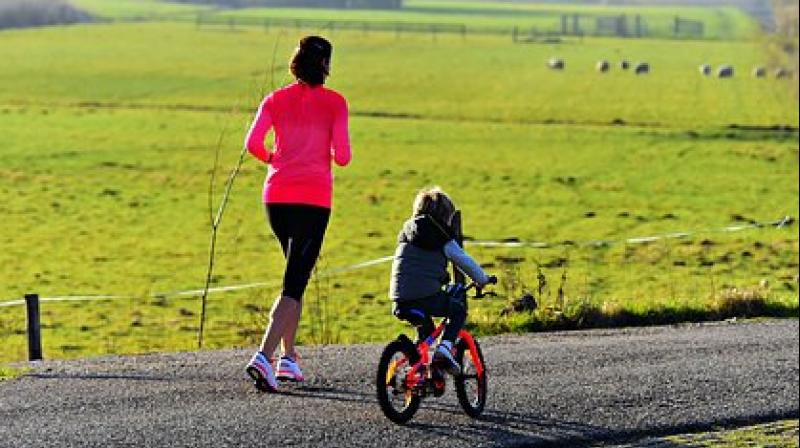Determining role of exercise in child’s health
How much exercise kids need to do to stay fit and healthy.

Washington: The importance of keeping ourselves physically active can't be undermined and many adults do exercise to keep themselves healthy and fit. However, when it comes to children, we overlook the role exercise plays for their health and wellbeing.
According to the US Department of Health and Human Services guidelines, children aged six and older need at least an hour a day of physical activity. The exercise should include either moderate or vigorous aerobic activity with time devoted to strong activity should be at least three days a week. Besides, the children should also do muscle and bone strengthening at least thrice in seven days.
To enhance the growth and development of children, the department also recommended that children between three to five be physically active throughout the day. Parents should keep a tab on their kids' physical activities and motivate them to participate in active play that includes a variety of activities. Exercise offers a host of benefits including improved aerobic fitness, muscle strength, and endurance for six to 17-year-old kids.
Another study presented at 'American Academy of Pediatrics 2018 National Conference & Exhibition' last year, found that more than half of the United States children are not getting the recommended amount of weekly physical activity. And most of those who do meet the recommendations are exercising longer and for fewer days, risking burnout or repetitive injury risk.
"Exercise should be used as a vital sign of health. There are numerous advantages to physical activity. Asking these questions can open the door for clinicians to have important conversations with families on how to ensure children get these benefits," said abstract presenter Julie Young, a research assistant in the Division of Pediatric Sports Medicine, Nationwide Children's Hospital.
The findings examined the self-reported physical activity of 7,822 children over a three-year period. The children were seen at outpatient pediatric sports medicine clinics. Data indicates that only 5.2 per cent of children reported meeting the daily goals for physical activity.
In addition, 49.6 per cent were insufficiently active, and 5 per cent were reported no physical activity. The categories were based on the number of minutes per week in which children participated in physical activity based on the recommended 60 minutes per day or 420 minutes of activity per week.
Researchers also noted that physical activity increased with age, with younger children reporting less exercise. Early childhood physical activity is vital to develop motor skills and physical literacy, which can impact physical activity behaviours throughout life.

